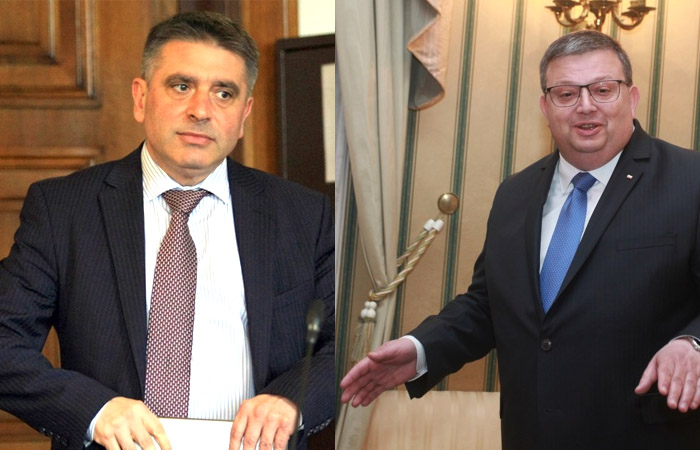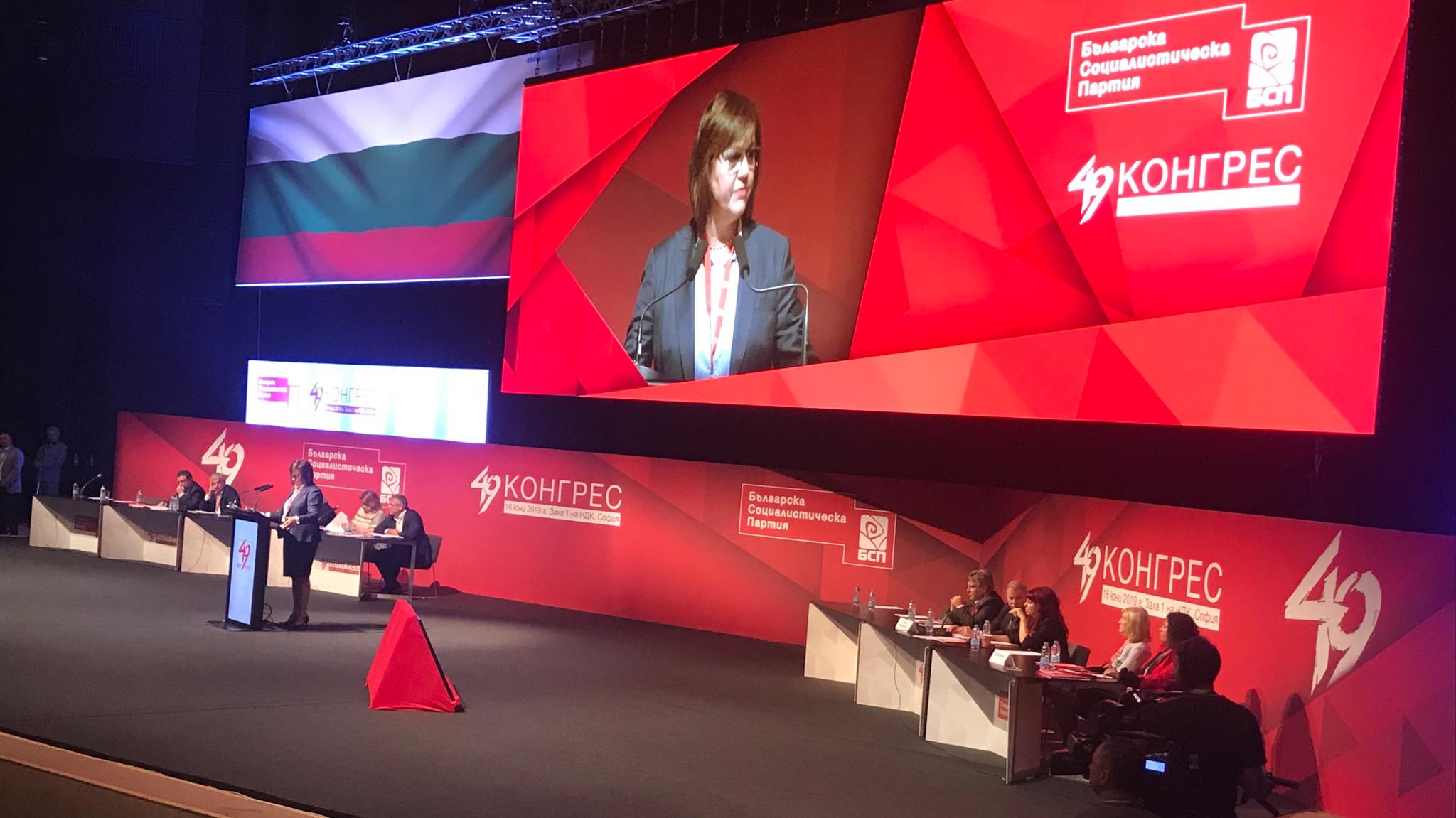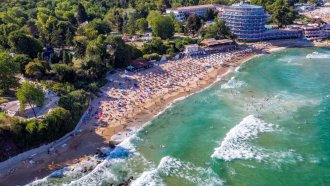Commentary
One coalition to rule them all: Another brick in the DPS-GERB fortress of total rule. Almost.
Parliament postponed the final vote on bill to cut state subsidies for political parties at the last minute, but the bill is still only that final vote away

GERB and the Movement for Rights and Freedoms (DPS) decided to introduce a bill to cut the state subsidies for political parties from 11 leva per vote to one lev per vote. It took them about two weeks to come up with the idea (at least publicly) and zoom it through Parliament with light speed. The final vote in Parliament was scheduled first thing in Friday’s agenda but was dropped at the last minute. Although the last-minute-ness of the decision to postpone the final vote is arguably in line with the inception, drafting and reading of the bill pace-wise, it did not resonate well with DPS at all (who wrote some angry letters to PM Boyko Borissov), which means it was a one-sided decision by GERB. The reason to pull back is at least in part due to the coalition partners’ very clearly and rather loudly voiced concerns over the bill, as well as to the fact that vice-PM Valeri Simeonov added a hint that the coalition will be put into question if the bill is not discussed internally first.
The parties making up the coalition partner are rightfully concerned that small parties will be left with very little resource to sustain themselves, let alone push for policies. Also, the playing field will become dramatically uneven: while smaller parties tend to use their resources, larger ones have been saving up. GERB for example has managed to set aside the astonishing 23 million leva. In other words, if tomorrow the parties start receiving less than a tenth of the subsidies they receive today, the largest parties (GERB, the Bulgarian Socialist Party and DPS) could easily spend just as they do now for the foreseeable future, without having to worry about filling up the gap. In the case of GERB, this period is twice as long as the runner-up – BSP. DPS is a peculiar case, as it – unofficially and/or – indirectly owns half the country. Its honorary leader acquiring a whole TPP for 1/70th of its value and being awarded a public contract for cold reserve practically overnight, is just one of many examples of this party’s actual power and influence over the state’s assets and overall political landshcaft.
The point about cutting the majority of political parties’ financing and its immediate effects is on the surface of the bill. It is the most obvious and straight forward implication from it. BSP did vote against the bill, but apart from that – the mere fact that GERB and DPS propose a bill, which will deeply affect the way the political parties operate (and indeed – if they operate, unless they are GERB, BSP or DPS) is in of itself authoritarian: you hold the power, and you introduce legislation, which would damage most of your opponents but not you. In a sense, this is so obvious, it holds up just based on the way this was done, it precedes substance.
But this bill goes much further than merely cut subsidies. In a rather cynical explanation to the media, the authors of the bill propose for parties to be allowed unlimited donations from individuals and companies, “like in the United States”. Unlimited both in the sense that they could get as much as the donor sees fit, and in the sense that anyone can donate. Including companies with long-term public contracts, for example. The authors describe – doubling down on cynical explanations - the bill as introducing transparency in the way the parties get financing. The grain of truth here is that political parties do in fact receive illegitimate funding from companies, which are close to those in power. This abstraction at the very least means a company is subscribed to winning public procurements indefinitely. Also, that they have certain politicians and high-ranking officials in a dependency hold.
So, does this mean that the bill is a way to fight this illegitimate practice? On the contrary: for one thing, it will only legitimize a longstanding corrupt practice, which has captured the state. The most basic problem here is that particular groups and particular parties have taken over the power in the country, and legitimizing this after the fact will not introduce the option for new companies – for example – to enter this arena. The political-corporate is already occupied by all the players it needs for function and reproduce. As an added bonus, if you are high up the chain of oligarch power, and maybe have a political party and own a bunch of businesses, you might decide to finance those political parties, with whom you wish to govern.
For another thing the negative side of this field also might be just as key as to whatis this bill actually meant to accomplish.
It is easy to see how the parties who already have deep ties with the corporate world would like to legitimize them. But one exemplary added benefit to such a playing field is that such legislation would serve as a policy to prevent opponents from receiving funding as well. Because it is truly unimaginable how anyone would publicly, on the record and via financial backing go against those in power and support any real opposition. This is a country, whose rule borders authoritarian, and where the private and public players are either cemented together or oppressed by the state. The former has long since decided it is even unnecessary to pretend otherwise: opposition media and journalists are openly bullied by the prosecution nearly constantly, along with former and current members of opposition parties or otherwise unfriendly to the status quo entities. The prosecution, along with a supporting pallet of law enforcement or similar state bodies are merely instruments in the hands of those who make up the status quo.
In this perspective the bill both cuts away most of the funding smaller parties rely on, but also undermines their chance to receive meaningful donations in the future. And moreover, as this is a quite significant point, the “imperfection” that the bill does not provide for a restriction on who can finance political parties, including recipients of public contracts and concessions – makes perfect sense.
The notion that 11 leva is too high is more or less a point of public consensus across the board. But what this government is trying to do is not to solve any problem. Instead it will do away with a key legislation, with the potential to affect the whole political system – and enforce a sort of a quarantine in its place against any outsider. Because if lawmakers were actually concerned with producing a democratically sound and fair piece of legislation, they would have definitely thought about a) limits and restrictions as to who can donate and how much, b) propose an amount, which would not put smaller parties at risk for survival; may be look into a progressive formula and most importantly – c) put the issue up for a real public debate. Alternatively, propose no bill at all but look into the fact that the political parties do not account for their spending, because there are no rules to oblige them for anything more than a very general annual outline on spending, which – as an added bonus – is virtually unverifiable.
Cutting down the state subsidies is fine in of itself, but this is not a bill for that. It is a tool to clear off the opposition and legitimize the captured state and produce the consecutive brick to the fortress that is the GERB-DPS total rule.
In other news:
The EC insists the Prosecutor General not be untouchable, Justice Minister answers with bill to allow for supreme judges to be investigated

Last week Justice Ministers Danail Kirilov proposed a curious bill, which according to him would address the longstanding problem, that the the Bulgarian prosecutor general is virtually untouchable. The European Commission has long since insisted on deep reform within the Bulgarian justice system, and has always pointed to the fact that the PG cannot be investigated at all as one of the top priorities in this reform. For the past decade when the reports from the Cooperation and Verification Mechanism has been focusing and repeating time and again this issue in its reports, Bulgaria has not made any real steps to address it.
So, last Friday Justice Minister Danail Kirilov decided to do just that, and present a new bill to the public, which supposedly addresses the issue. Except, the provisions are for the so-called Big Three in the justice system: the two supreme judges (casassions and administrative), along with the GP will be affected by the new law. Kirilov kept saying that the bill addresses the problem the EC has of the Big Three being untouchable, but the EC has never said anything about the supreme judges, only about the PG in this regard. Moreover, the judges plainly do not have the control over lower-ranking judges the way the PG has over prosecutors: i.e. be their direct boss. Precisely these prosecutors, who work directly under the PG would be the ones to investigate him, according to the new bill.
Even at this level, the proposal seemed suspicious. Expanding the scope to include the supreme judges is already a risk. This week experts from the NGO sector alerted that not only is this a risk but that the bill doesn’t provide for anything that would actually change the PG’s untouchable status, except only vaguely on paper. But it does provide for the justice minister to put pressure on supreme judges.
The problem is that the decision to investigate or remove from office the PG must be made by the Supreme Judicial Council, according to the bill. But the council’s members, appointed by the PG and Parliament have a vast majority over the rest, who are appointed by the judiciary. Additionally, the justice minister can also propose to open up an investigation, wherein, according to experts, lies the risk of political pressure over supreme judges.
Prosecutors open inquiry into Bivol journalists on fake tip

Prosecutors opened up an investigation late last week into journalists from the investigative site bivol.bg. The prosecutors informed they were following up on a tip from the civil society organization BOEC. The information was quickly reveled to be fake.
The police received an e-mail, signed from BOEC, containing information based on a publication by Trud Daily against the reporters from Bivol. It claims two of them, Atanas Chobanov and Asen Yordanov had acquired attractive properties on low prices. BOEC immediately denied having anything to do with the e-mail, and called for public support for the “bivols (bulls) in their fight with the mafia and corruption”.
Trud Daily is not a Peevski-owned newspaper, but its editorial policy strictly mirrors them and is generally pro-government. The piece makes allegations about the properties, questions their legality and ultimately puts into question the journalists’ integrity, given their extensive publications related to ApartmentGate and other such scandals.
The information in the piece itself was just a quickly proved fake with the two journalistst providing documents for proof.
Meanwhile, the Bulgarian desk of the Association of European Journalists officially filed for an explanation from the Prosecutor’s Office, including if Prosecutor General Sotir Tsatsarov had anything to do with it, given Bivol just recently published a story about him acquiring a villa for a third of the price.
Eurohold buys CEZ for 335 million euro

The Bulgarian energy holding Eurohold is in the process of buying the assets of the Czech-owned Bulgarian electic distribution company for west Bulgaria. Eurohold will finance the deal combining own funding and loans from two global investment banks, the holding announced.
Several weeks ago the head of the supervisory council of the holding Asen Hristov told Czech journalists that they have selected three top western banks for the loans and will not be counting on Russian financing.
Eurohold announced it will keep the top management of CEZ if the regulatory body, the Commission for the Protection of Competition, approves the deal.
The Antimonopoly Commission was the reason the previous deal – with Ginka Varbakova’s company Inercom – froze and ultimately was not finalized. The commission blocked the deal because Inercom already owned solar plants and if it owned an electric distribution company, it might abuse its dominant position on the market. Varbakova tried to transfer the plants to a different owner, but the commission did not change its position, and the deadline for closing the deal passed.
CEZ’s assets in Bulgaria include 67% of the electric distribution company CEZ Distribution Bulgaria, 67% of CEZ Electro Bulgaria, and the rest are owned by investment brokers since 2012
F-16 fighters to be paid by the state reserve, PM Borissov said

The offer for the F-16 fighters Bulgaria is negotiating with the U.S. Lockheed Martin is for 2,2, billion leva. The government is still counting on shaving 200 million off the American offer.
The Bulgarian Parliament has only approved 1,8 billion leva for the fighters. PM Boyko Borissov suggested that the difference will be covered by the state fiscal reserve and a 300 million foreign debt, which the Ministry of Finance emitted especially for the fighters.
Defense Minister Krassimir Karakachanov announced that a U.S. delegation is expected to arrive next week for final talks in the deal.
BSP leader withdraws resignation

The night of the European elections, when the Bulgarian Socialist Party gave a press brief about its loss, BSP leader Korneliya Ninova told reporters she will not be resigning as party leader. The very next day Ninova declared publicly that she will, after all, resign.
A few weeks later, at BSP’s national convention last Saturday, Ninova was going to resign officially, or so everyone thought. Instead she announced that she is withdrawing her resignation. She spoke about businessmen taking over BSP, a conspiracy of sorts, which had been brewing since she announced she would resign. She did not name any business or person in connection to those allegations. She justified her decision to withdraw her resignation with this supposed “threat” of “otside forces” to take over BSP.
The more likely reason, however, is that Ninova counted on being reelected as party leader but realized she lacked the support.
Ключови думи
За честна и независима журналистика
Ще се радваме, ако ни подкрепите, за да може и занапред да разчитате на независима, професионална и честна информационно - аналитична медия.
 0 коментара
0 коментара
Екипът на Mediapool Ви уведомява, че администраторите на форума ще премахват всички мнения, съдържащи нецензурни квалификации, обиди на расова, етническа или верска основа.
Редакцията не носи отговорност за мненията, качени в Mediapool.bg от потребителите.
Коментирането под статии изисква потребителят да спазва правилата за участие във форумите на Mediapool.bg
Прочетете нашите правила за участие във форумите.
За да коментирате, трябва да влезете в профила си. Ако нямате профил, можете да се регистрирате.




